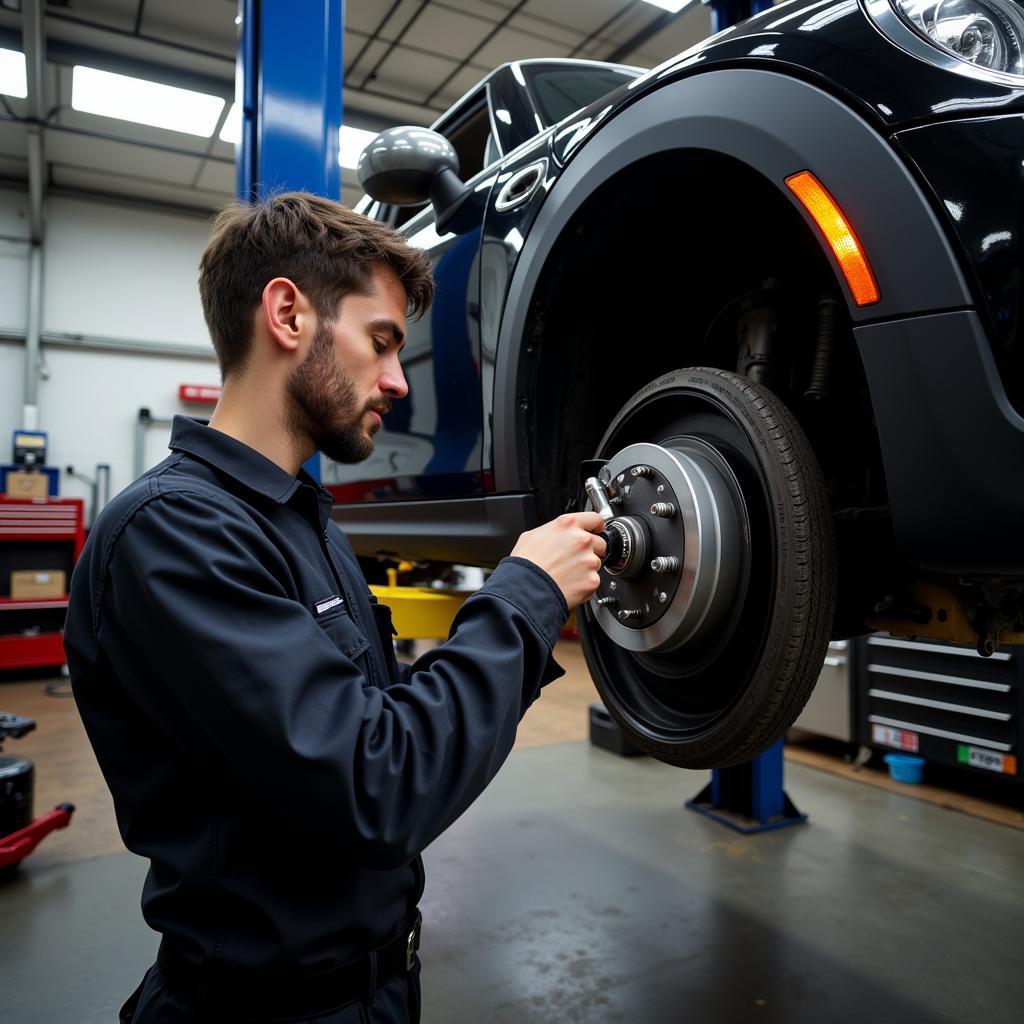You just installed a new battery, expecting your car to roar back to life, but it’s still stubbornly refusing to start. Frustrating, isn’t it? “New battery still won’t start” is a common issue, and you’re not alone. This article will delve into the reasons behind this problem, providing you with the diagnostic tools and solutions to get you back on the road.
Beyond the Battery: Why Your Car Still Won’t Start
While a dead battery is the most common culprit for a no-start condition, a new battery still not starting points towards other potential problems. It’s time to investigate further. These issues can range from simple loose connections to more complex problems like a faulty starter or alternator. If you’ve replaced the battery but the car still won’t start, don’t panic. replaced battery but car still wont start often requires a deeper dive into your car’s electrical system.
Checking the Obvious: Connections and Cables
First, double-check all battery connections. Ensure they are clean, tight, and free of corrosion. Even a slightly loose connection can prevent the battery from delivering sufficient power. Use a wrench to tighten the terminals, ensuring a snug fit. battery not dead but car wont start can sometimes be a simple fix like this. Next, inspect the battery cables themselves. Look for any signs of damage, fraying, or cracking. A damaged cable can restrict current flow, leading to starting problems.
The Starter Motor: The Heart of the Starting System
If the connections are fine, the next suspect is often the starter motor. The starter is responsible for cranking the engine, and a faulty one can prevent the car from starting even with a new battery. You might hear a clicking sound when you turn the key, indicating a failing starter. You can test the starter by using a multimeter or by having it professionally tested.
Is it the battery or something else? car wont start is it battery offers guidance on differentiating between battery issues and other potential problems.
The Alternator: Keeping the Battery Charged
The alternator recharges the battery while the engine is running. A failing alternator can drain a new battery quickly, leading to a no-start situation. new battery and alternator still wont start could indicate deeper issues within the electrical system. One way to check the alternator is to test the battery voltage with the engine running. If the voltage is low, the alternator may not be charging properly.
“A common mistake people make is assuming the battery is the only component involved in starting a car. It’s a complex system, and several factors can contribute to a no-start condition,” says John Davis, Senior Automotive Electrical Engineer.
Other Potential Culprits
Several other less common issues can cause a car with a new battery not to start. These include a faulty ignition switch, blown fuses, or even a problem with the car’s computer system.
Why is my battery warning light dim?
A dim battery warning light can indicate a problem with the charging system, often the alternator. dim battery warning light can be an early sign of a bigger issue. It’s essential to address this promptly to avoid getting stranded.
“Always start with the basics,” advises Maria Rodriguez, Certified Automotive Technician. “Checking connections and cables is the first step in diagnosing any starting problem. From there, you can move on to more complex components like the starter and alternator.”
Conclusion
Experiencing a “new battery still won’t start” situation can be incredibly frustrating. However, by systematically checking the connections, starter, and alternator, and considering other potential issues, you can pinpoint the root cause and get your car running again. Remember, safety first! If you’re unsure about any step, consult a qualified mechanic. Don’t let a new battery still won’t start problem keep you off the road.

